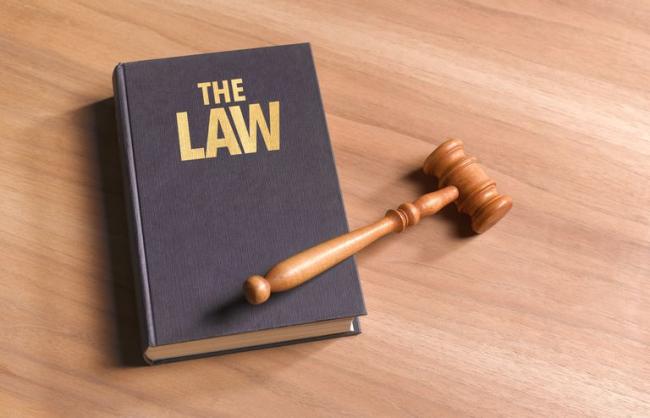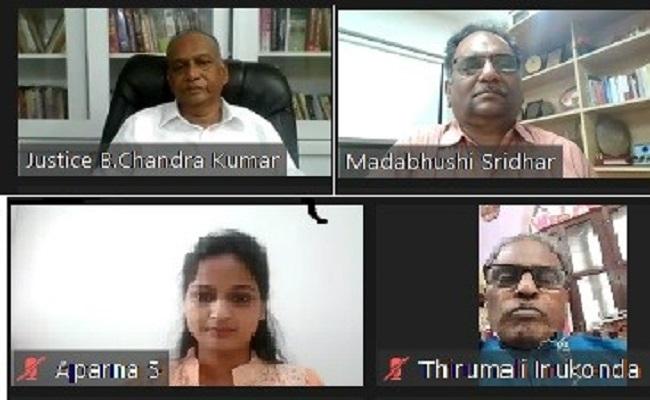Mahindra University School of Law Organizes Webinar on 72 years of Constitutional Democracy

The Mahindra University School of Law is hosting a Webinar on the 72nd Anniversary of Constitutional Democracy.
On the occasion of Constitution Day, Mahindra University School of Law organised a webinar on Constitutional Law on the topic "72 Years of Constitutional Democracy: Merits and Demerits." Justice B Chandrakumar retired Judge of the AP High Court, and Prof. (Dr) Inukonda Thirumali, a renowned academic, spoke on the occasion. The Dean and faculty from the School of Law at Mahindra University also addressed the webinar, which was available to students as well as an external audience interested in the subject.
"We are proud to be a part of a vibrant democracy. Our democracy’s backbone is the Constitution. What better way to celebrate democracy than with a discussion of the constitutional aspects of it! We at Mahindra University are happy to indulge in a meaningful discourse on the constitution organised by the Centre for Constitutional Studies under the aegis of Mahindra University School of Law, "says Dr Yajulu Medury, Vice-Chancellor, Mahindra University.
Taking part in a debate on constitutional law, Justice Chandrakumar stated that in 1977, when all other constitutional safeguards failed to check the mismanagement of power under the declared National Emergency rule, Indian citizens could vote out the government in power. He further said that the Constitution is an incredible safeguarding document depending on who is handling it. He advised law students to understand the power of the law as a weapon to judiciously help the people, who are deprived of justice. Justice Kumar emphasised the importance of strengthening the constitutional institution and the enduring system to ensure that citizens' fundamental rights are solidly in place.
Speaking on the occasion, Prof. (Dr) Inukonda Thirumali talked about the strength of democracy within the Indian Constitution. He explained how the nation-state emerged from the functioning of the Constitution, which was preceded by the different phases of nationalism during the Independence movement. Prof. Thirumali also shed light on how and what Indians demanded and drafted in their own Constitution.
In his concluding remarks, Prof Madabhushi Sridhar Acharyulu, Dean, School of Law - Mahindra University, said, "The Constitution of India is the basis of all governance in India, be it the rights or duties of citizens, or the basic political framework, structure, and powers, or the duties of government institutions. All of these are explained in detail in the longest written constitution of any country. It is the collective responsibility of each one of us as individuals, as well as the political, executive, and legislative branches, to follow the constitution not just in letter but in spirit. It is when the constitution is not adhered to by any branch that the skirmishes or breakdowns of system creep in".





